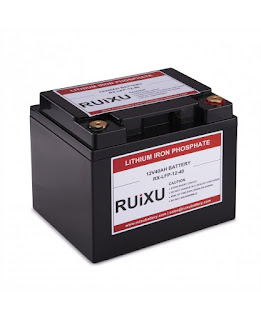Lithium iron phosphate battery (LiFePO4), a lithium-ion battery technology, is a safe battery that is superior to that of lead-acid battery in terms of storage capacity, consistent high power, longer shelf life, weight and quick charging. All of these properties have made the LiFePO4 battery an ideal choice for marine use. They are the safest type of lithium-based batteries that does not overheat and does not pose any environmental hazard. Lithium iron phosphate battery manufacturers can help you to understand the functioning and capability of battery banks, thus, connect with them before making a final decision.
Listed below are the advantages of using lithium iron phosphate battery pack in marine vehicles:
• The lifecycle of a LiFePO4 battery is 2000 – 4000 cycles and can be discharged to 90%. This feature is extremely significant in the case of water transport.
• LiFePO4 battery has a constant discharge of voltage. These batteries stay at a voltage of 13 - 13.4V until the discharge up to 95% and then voltage falls down quickly. Whereas, a Lead-acid battery decreases its voltage from 13V to below 11.5 V. Hence, a LiFePO4 battery operated appliance operates efficiently until the full energy is discharged.
• Since LiFePO4 battery can safely, draws down up to 95% compared to 50% of a lead-acid battery, which means fewer LiFePO4 batteries achieve the same power. The battery weight of the LiFePO4 battery combined with capacity means significant reduction in the lithium iron phosphate battery pack weight. The LiFePO4 battery occupies only 40% space as that of a lead acid. Lighter and compact batteries will help in the easy mobility.
• LiFePO4 batteries are generally safe when compared to other lithium-based batteries. The Battery Management system takes care of the overcharging and discharging rates. LiFePO4 battery does not have the risk of emitting noxious fumes as compared to that of lead-acid batteries.
• LiFePO4 batteries can be stored in temperatures between -25oC to 40oC. The charging of a LiFePO4 battery below -20oC can degrade the battery. It is advisable to remove the negative terminals during winter or when the battery is kept in long storage.
• The lithium iron phosphate battery manufacturers, owing to its long lifecycles, recommends it as a best investment that can be made for a speed boat.
To buy LiFePO4 battery is indeed an expensive choice, but its advantages over the lead-acid batteries or other lithium-based batteries can overlook this additional cost. So, invest smartly and effectively.
Listed below are the advantages of using lithium iron phosphate battery pack in marine vehicles:
• The lifecycle of a LiFePO4 battery is 2000 – 4000 cycles and can be discharged to 90%. This feature is extremely significant in the case of water transport.
• LiFePO4 battery has a constant discharge of voltage. These batteries stay at a voltage of 13 - 13.4V until the discharge up to 95% and then voltage falls down quickly. Whereas, a Lead-acid battery decreases its voltage from 13V to below 11.5 V. Hence, a LiFePO4 battery operated appliance operates efficiently until the full energy is discharged.
• Since LiFePO4 battery can safely, draws down up to 95% compared to 50% of a lead-acid battery, which means fewer LiFePO4 batteries achieve the same power. The battery weight of the LiFePO4 battery combined with capacity means significant reduction in the lithium iron phosphate battery pack weight. The LiFePO4 battery occupies only 40% space as that of a lead acid. Lighter and compact batteries will help in the easy mobility.
• LiFePO4 batteries are generally safe when compared to other lithium-based batteries. The Battery Management system takes care of the overcharging and discharging rates. LiFePO4 battery does not have the risk of emitting noxious fumes as compared to that of lead-acid batteries.
• LiFePO4 batteries can be stored in temperatures between -25oC to 40oC. The charging of a LiFePO4 battery below -20oC can degrade the battery. It is advisable to remove the negative terminals during winter or when the battery is kept in long storage.
• The lithium iron phosphate battery manufacturers, owing to its long lifecycles, recommends it as a best investment that can be made for a speed boat.
To buy LiFePO4 battery is indeed an expensive choice, but its advantages over the lead-acid batteries or other lithium-based batteries can overlook this additional cost. So, invest smartly and effectively.

